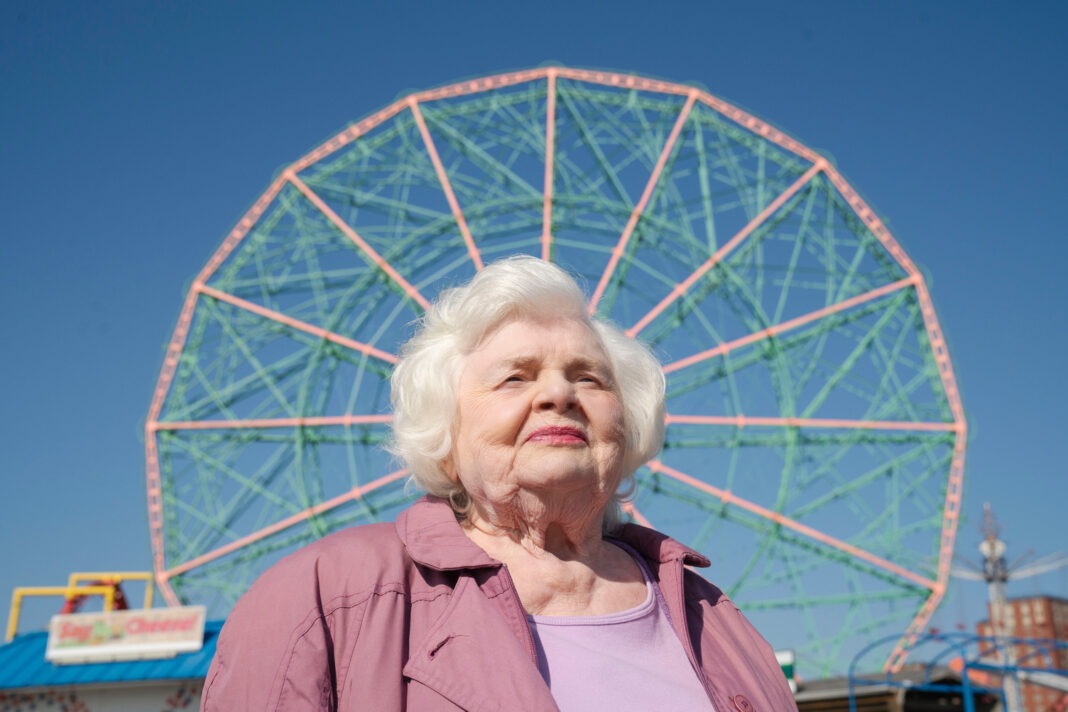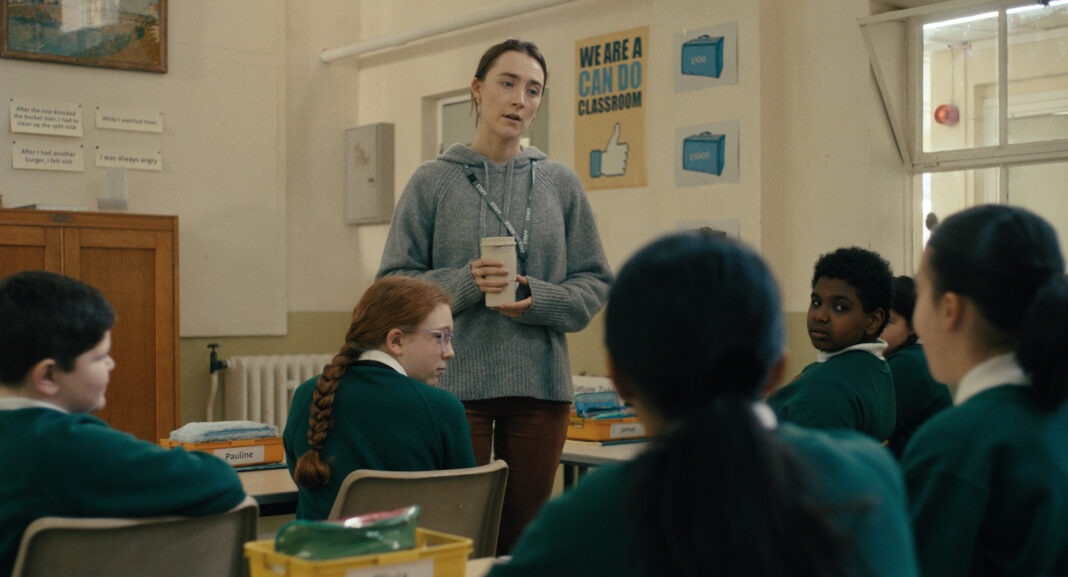How much damage could a white lie do? This is a question that’s been asked many times in media, and the answer is usually much more than it initially seems. But most stories that deal with this concept seek to examine how people respond when something that is only partially true or completely invented is accepted as fact and takes on a life of its own. Eleanor the Great, while surely well-intentioned, offers a far more dangerous message that seems to endorse doubting all information and gets very lost on its way to a lackluster finish.
Eleanor (June Squibb) decides to move in with her daughter Lisa (Jessica Hecht) and grandson Max (Will Price) after her lifelong best friend and roommate Bess (Rita Zohar) dies. Urged by Lisa to meet other people at the local Jewish Community Center, Eleanor accidentally wanders into a support group for Holocaust survivors. While she initially tries to tell them she’s in the wrong place, she ends up telling Bess’ story, adopting it as if it’s her own. She quickly becomes a beloved member of the group and even begins preparing to have a Bat Mitzvah as she forms a close relationship with Nina (Erin Kellyman), a student journalist who decides she wants to profile Bess for a class project.
There are many points throughout this film where logic and even a minute amount of helpful clarification would have dictated a neater and more satisfying direction. It begins with Eleanor’s choice to relocate to New York to live with a daughter she doesn’t speak to often and to make no effort to get to know her. It makes sense that she’s lost and doesn’t know what to do given that Bess was always by her side, but there’s little about the dynamic Eleanor and Lisa have that makes them feel like a real family, especially considering the contrast of Max enthusiastically wanting to spend time with his grandmother. A strained relationship is understandable, but this film hardly digs into the root of that and doesn’t seek to get to know Lisa at all.
Eleanor’s lie also spirals out of control, and there are numerous points at which even the most rudimentary fact check could close the loop entirely, but that too doesn’t happen. It’s also not a complete fabrication, but there’s no gray area in this story, which finds everyone eagerly lapping up what Eleanor is saying. Perhaps the state of Holocaust education in America today really is dismal, but the delivery and receiving of information here feels terribly simplistic. And the takeaway seems to be that if such harrowing tales can be so easily learned, they are just as likely to be fully invented and therefore disregarded as pure fiction.
The elements involved in this film suggests that it should be set up for success. Squibb is fresh off headlining Thelma, a funny, refreshing action-comedy with a nonagenarian lead. Scarlett Johansson, who continues to make strong role choices, is directing her first film. The supporting cast includes Chiwetel Ejiofor as a seasoned TV journalist. But somehow none of it works, and this film feels entirely surface-level. There’s no complexity to the characters despite considerable room for that in the premise, and it feels like Squibb is playing Eleanor as a version of Thelma, who spends a good deal of time cracking jokes as if she’s inhabiting an entirely different film. Kellyman delivers the film’s strongest and most impactful performance, even though Nina should unquestionably fail any journalism class she takes, offering just a hint of fulfilled promise in an otherwise sorely disappointing film.
Eleanor the Great begins with an interesting concept but doesn’t have any idea what to do with it, presenting a disjointed story that touches on Judaism, the Holocaust, family, grief, journalistic ethics, and a handful of other undeveloped themes. Tory Kamen’s screenplay leaves much to be desired, opening strongly but failing to investigate and truly comprehend the relationships these characters have with each other. As the film approaches its conclusion, revelations are clunky and obvious, and there’s no semblance of any coherent statement on what Eleanor does and what it means to distort the truth. This accidental exploitation of trauma feels far more dangerous and subject to misuse by those with nefarious intentions who seek opportunities to disprove widely accepted history and will jump on any instance of vulnerability to do so.
Movie Rating: 4/10



